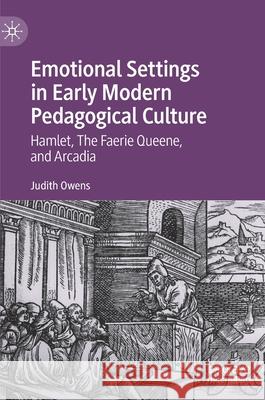Emotional Settings in Early Modern Pedagogical Culture: Hamlet, the Faerie Queene, and Arcadia » książka
topmenu
Emotional Settings in Early Modern Pedagogical Culture: Hamlet, the Faerie Queene, and Arcadia
ISBN-13: 9783030431488 / Angielski / Twarda / 2020 / 218 str.
Emotional Settings in Early Modern Pedagogical Culture: Hamlet, the Faerie Queene, and Arcadia
ISBN-13: 9783030431488 / Angielski / Twarda / 2020 / 218 str.
cena 194,08 zł
(netto: 184,84 VAT: 5%)
Najniższa cena z 30 dni: 192,74 zł
(netto: 184,84 VAT: 5%)
Najniższa cena z 30 dni: 192,74 zł
Termin realizacji zamówienia:
ok. 20 dni roboczych.
ok. 20 dni roboczych.
Darmowa dostawa!
Kategorie:
Kategorie BISAC:
Wydawca:
Palgrave MacMillan
Język:
Angielski
ISBN-13:
9783030431488
Rok wydania:
2020
Wydanie:
2020
Ilość stron:
218
Waga:
0.45 kg
Wymiary:
21.01 x 14.81 x 1.75
Oprawa:
Twarda
Wolumenów:
01
Dodatkowe informacje:
Wydanie ilustrowane











